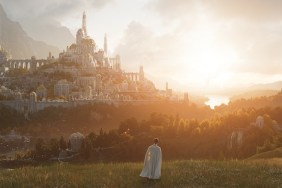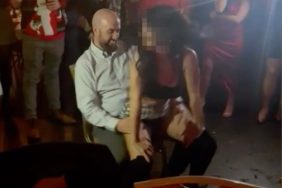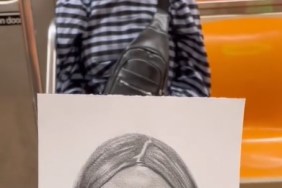To the Bat Poles! In 1966 that became one of the many catchphrases of Batman, a TV show that introduced the caped crusader as a wacky, pop culture icon through the lens of physical comedy. It became a phenomenon and even now, nearly five decades after the show premiered, it continues to gather an army of fans.
So how does one turn such a visual TV show into a comic book? Interesting thought, one that writer Jeff Parker decided to take on. Batman ’66 is a full realization of the show in comic book form. Not just a comic of the show, it fully creates that universe in two dimensions. Instead of bad sets and props, the Batman of that era is in an actual universe. Parker has taken great pains to keep the humor and wit of the show, while still formulating it into a new world. This fascinated me, so I tracked Parker down at NYCC and we tried to figure it out together.
CraveOnline: How do you turn that show into a comic?
Jeff Parker: Wow. You just stopped me cold with that one. I had to think because for years you couldn’t do Batman that way because the rights were all tied up. When Jim Chadwick called me and said they had the rights to do this, and that so far they only had Mike Allred signed up to draw covers, which would have been my first choice because, hey, lets tie up Allred forever. Anyway, I immediately called back and said don’t ask anybody else I want to do this.
Why so adamant?
I was afraid somebody would do it that didn’t get it, which is super important to making it work. I was also afraid somebody would be too religiously committed to the show, and do something like make it look hokey on purpose. That’s not the way to do it. The way to do it is to treat it like the environment of the show as if they had a giant budget, could get anybody they wanted and had leisure time to make it look great, the way they probably would have wanted to do it.
How do you do that?
Don’t make something look fake. Make it look good. The key is to have Batman deliver lines the way Adam West would do it, and to have everybody worship Batman because they basically think he’s God. Batman thinks that too, but he’s too polite to rub it in anybody’s face. All the villains in this world, their biggest thrill, would be to just see Batman. They want to think their crime is worthy enough to attract his attention. Every single show they stop and talk about how awesome he is. (Laughs)
Was it hard getting the iconic fight BAMS and BIFFS into it?
Since we use the DC Digital, the square, we can put in the biffs, pows and bampfs, but not make them feel gimmicky, more just as part of that world, and the pop art that they must have thought seemed pretty wacky.
How do you bring in the pop art without making it look intentionally wacky?
I’m not sure. One thing that’s been helpful are the artists who cued in on it early. Jonathon Chase is the first artist on the series, and he right away nailed it. He realized some things he could do with color, and working with the digital, that just completely got the point across. He’s a fan like I am and we didn’t want it to seem retro. It still has to be good in the way there are only two kinds of songs, good and bad.
You don’t want it to seem cheesy right?
You don’t think of it as cheesy, it’s just the way this world works. Upcoming we have a King Tut story drawn by Scott Kowalchuk, and he’s done the same thing. He’s getting this really dispirit sense of color and physical elements, and the design work. If you could write it down and just tell people how to do it, everyone could do it, but you really have to get it. It doesn’t always work.
Did you know Batman ’66 would be a success?
I kinda knew it was going to be big, though they picked the worst possible time to release the information for Batman ’66. It was on a Friday afternoon, like the time of day you tell somebody they were getting fired. Yet boom, something about dropping it on this odd time worked. I had teased it on Twitter, and once you make something a puzzle for people they really get into it, and so on that Friday it was all anybody was talking about going into the weekend. It was just the way it worked out. People were so ready for someone to embrace that era of Batman, plus Adam West, Burt Ward, Julie Newmar, they’re all still alive and you can see them at shows and sign things. It’s nice to give them this big finale.
Have you heard anything from the cast about the book?
No I haven’t. I’m a bit of a coward that way. I won’t push it. Julie Newmar saw it and sent an email to Jonathon Case with some of her favorite pictures of herself saying ‘Look at these’. That is wonderful.
How collaborative do you have to be with the artist to make sure the work is consistent?
I always examine which artist I’m working with. I try to figure that out early on. I don’t like writing a script and then finding somebody to draw for it. I like to know the strengths of the person I’m working with and anticipate maybe something they would have trouble drawing. I talk to the artist about the show, what they liked and didn’t like, and that helps me a lot. Anytime you’re doing this kind of stuff, you should be having a dialog with the artist.
Which villains are you excited to do next?
From the show? I’ve done about all the show villains.
Even Egghead? I missed Egghead?
Yeah we’ve done Egghead, we have another Egghead story coming, or its out now, where Egghead goes into the future and gets more brain power.
So is the next step to bring in other villains from Batman’s universe not on the show?
I’ve been waiting for that forever and I think the adaptation of the Harlan Ellis story with Two-Face could be the thing. That’ll be the first villain that wasn’t from the show. After that I said ok guys, this thing is coming out now can I please do Poison Ivy? If you’re reading the series I’ve designed it in a way to introduce new characters.
How so?
In my mind what will work to bring the villains into this world is to have them created by villains from the show. If you think hard enough you’ll be able to figure out what I’m going to do to get to other villains.









